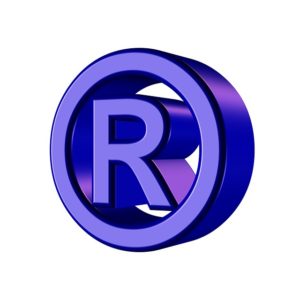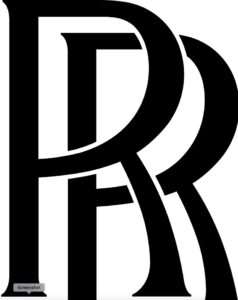Selling a Business: Trademarks and Brands
2 January 2023: Selling a Business: Trademarks and Brands
When selling a business, consideration of any trademarks or brands the business may own or use is important.
Trademarks and brands used in the operation of a business are assets that can have significant value. Even the relatively small businesses that we work with – those with valuations of between US$250,000 and $25 million – have brands, trademarks, logos and other proprietary assets that must be considered when the time comes to sell.
The problem with such assets is trying to determine if they have significant value and, if so, what that value is. But before we consider value, we have to determine what brand assets a business has and who actually owns each.
Uncovering “Branded” Assets
I’ve written previously of how important it is for the seller of a business to do some buyer due diligence on his or her business before it comes to market. It’s much better – and far less embarrassing – to discover problems internally rather than have a buyer discover such problems after the LOI or purchase agreement has been executed. And if the buyer makes the discovery, you can bet that the price will be negotiated down.
A savvy buyer will, as part of its due diligence, do what we refer to as “brand due diligence and a seller should get out in front of this.
__________________________________________________________________________________
We offer a comprehensive coaching program – both group coaching in our Brokers’ Roundtable community as well as one-on-one coaching – tailored to Realtors, business owners , buyers and anyone interested in valuing, buying or selling a business.
If you’d like to learn more, email me at
jo*@Wo*******************.com
___________________________________________________________________________________
Before selling a business, one of the keys steps a seller should take is to identify the “brand assets” the business owns and that will be included in the transfer. Such assets include: registered trademarks; unregistered logos or brands; phone number(s) (toll-free or otherwise); domain names; social media accounts; advertising materials; website and social media content are all examples.
 Most businesses have information on their registered trademarks but identifying unregistered “brand assets” might take some work and sellers may be reluctant to do that work. In the face of such reluctance, we generally try to explain that discovering and identifying unregistered “branded assets” could positively impact value and that hiring the identifying process out might be a good idea. However, we don’t want to waste our clients’ money on any searches that are likely to prove unproductive.
Most businesses have information on their registered trademarks but identifying unregistered “brand assets” might take some work and sellers may be reluctant to do that work. In the face of such reluctance, we generally try to explain that discovering and identifying unregistered “branded assets” could positively impact value and that hiring the identifying process out might be a good idea. However, we don’t want to waste our clients’ money on any searches that are likely to prove unproductive.
For example, if we’re selling a three-location, “mom and pop” convenience store package with a value of US$2 million, identifying the proprietary assets with value – name, phone number, URL, etc. – is relatively easy and any more arcane assets are likely to add little or no value in the buyer’s perception.
However, if we’re advising the owners of a US$12 million specialty manufacturer, identifying all the unregistered assets might very well positively impact the business’ market value.
Who Owns What?
There’s that question again!
We’ve often written about how important it is for business brokers (and buyers) to understand who owns the business we’re working to sell. This is equally important when considering the proprietary assets that a business uses in its day-to-day operations. Here are three examples.
 If the business has an ingenious system for manufacturing something – tires, for example – who came up with that system? Was it an employee? A third-party contractor? Was it a collaborative effort inside the business? Who owns that system?
If the business has an ingenious system for manufacturing something – tires, for example – who came up with that system? Was it an employee? A third-party contractor? Was it a collaborative effort inside the business? Who owns that system?
If an employee invented it as part of his or her employment, the company owns it. But if it was created by a third party, the company may not own it.
Another example involves the graphics used by the company. Who created those graphics? If it was an outside design form, were the ownership rights to the finished product transferred to the company being sold? Dig out the original contract with the design company to see if the ownership rights are addressed. If they aren’t, it is wise to address them before coming to market.
_____________________________________________________________________________________
Our course, “Learn How to Value and SUCCESSFULLY Sell Businesses“, teaches you how to accurately value and successfully sell businesses.
Our final example starts with a question; Who owns the business’ website and its content.
If you scroll down to the bottom of most website pages, you’ll generally find two statements: one referring to the company that built the site, the other referring to who claims the copyright to the content. Finding only the former, suggests a potential problem. How or where the website is hosted could also impact ownership.
Related Issues
When selling a business, licenses are often common aspects of the sale. Businesses can license a product name (or product), another business’ brand, a system of doing business (franchises) and many other aspects of their operation. I mean, why try to reinvent the wheel? If it’s already in the marketplace, see if the inventor/owner will allow you to use it via licensing agreement!
 For example, we occasionally license some of our intellectual property (“IP”) to brokers that we train. When those brokers eventually sell their brokerage business, will that license automatically go to the buyer of the brokerage? In our case – and in many licensing cases – it might, but only under certain circumstances. Will that fact impact the value of those brokerage businesses? It certainly could.
For example, we occasionally license some of our intellectual property (“IP”) to brokers that we train. When those brokers eventually sell their brokerage business, will that license automatically go to the buyer of the brokerage? In our case – and in many licensing cases – it might, but only under certain circumstances. Will that fact impact the value of those brokerage businesses? It certainly could.
Licensing is a time-honored way for businesses to take advantage of their IP without entering a new and unrelated line of work. A perfect example of this is on display every day in every corner of the world.
Sports leagues – from Major League Baseball, the English Premier League, the National Football League, FIFA World Cup and dozens more – routinely license their trademarks for use on everything from pennants and bobble heads to backpacks and lunch buckets.
Who do you think makes all those NY Yankee hats you see wherever you go? Not the Yankees – and not Major League Baseball. There are dozens of businesses that have licensed the rights to slap the Yankee logo on almost anything the owner of the logo – the Yankees – deems appropriate, from T-shirts and boxer shorts to bumper stickers and toilet paper.
The Bottom Line
When selling a business, a brand may not necessarily be crucial in every transaction. Indeed, some buyers plan to re-brand immediately after the transaction closes. But where a brand – registered or otherwise – is important to the future performance of the business, brand  due diligence prior to seeking buyers is crucial. If the brand has value, the narrative of the marketing package when selling the business must explain how. And the asset list must show that the seller owns that brand.
due diligence prior to seeking buyers is crucial. If the brand has value, the narrative of the marketing package when selling the business must explain how. And the asset list must show that the seller owns that brand.
To give you a famous – or rather “infamous” – example of why this is of critical importance when selling a business, in the 1990s, the company that owned Rolls Royce decided to sell. Only after the sale was completed was it discovered that the trademarks were not owned by the seller. Try to imagine the number of people – lawyers, accountants and executives – who found themselves asking, “You want fries with that Whopper?” in the weeks following that discovery!
I’d like to hear from you. What topics would you like me to cover? How can we tailor these posts to be more useful to you and your business. Let me know in the comments box, below, or email me at
jo*@Wo*******************.com
.
If you have any questions or comments on this topic – or any topic related to business – I’d like to hear from you. Put them in the comments box below. Start the conversation and I’ll get back to you with answers or my own comments. If I get enough on one topic, I’ll address them in a future post or podcast.
I’ll be back with you again next Monday. In the meantime, I hope you have a safe and profitable week.
Joe
Searching For…
We’ve been contacted by a private equity sponsor looking for opportunities too acquire 51% or more of private U.S-based companies in verticals such as business services, technology/telecom, health and wellness, and consumer retail with minimum of $2 million in discretionary earnings/EBITDA.
If any of you know of something that might fit, please let me know.

#business #businessacquisition #sellabusiness #becomeabusinessbroker #businessbrokering #businessvaluation #MergersandAcquisitions #buyabusiness #sellabusiness #realtor #realestateagents
The author is the founder, in 2001, of Worldwide Business Brokers and holds a certification from the International Business Brokers Association (IBBA) as a Certified Business Intermediary (CBI) of which there are fewer than 500 in the world. He can be reached at
jo*@Wo*******************.com
